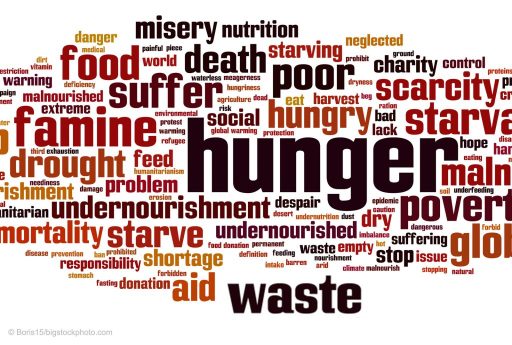
A recent document from the Food and Agriculture Organization of the United Nations shows the following data about food shortages and hunger on our planet:
1) Up to 757 million people faced hunger in 2023 – 152 million more than in 2019.
2) In 2023, 864 million people were food insecure, meaning they ran out of food at times during the year.
3) In Africa, 20.4% of the people are facing hunger.
4) 2.8 Billion people on our planet could not afford a healthy diet in 2022.
Human greed, selfishness, and ignorance cause food shortages and hunger. What should we do about it? In Matthew 25:35 and 42, Jesus invites those who gave the hungry something to eat and drink into His kingdom, while those who failed to do so are excluded. Jesus fed thousands of needy people. (See Matthew 14:13-21.)
Those of us blessed with adequate food and clean drinking water must reach out to those in need. We support 13 Christian organizations supplying food and water to needy people. Skeptics and atheists are not motivated to do this. If your belief system is “survival of the fittest,” you can write off the percentage of humanity in need and consider them “less fit.”
We can give you contact information if you want to get involved in Christian projects to provide food and water. Just email me at jncdge@aol.com. You can be part of the solution to the food problem.
— John N. Clayton © 2024
Reference: Food and Agriculture Organization of the United Nations









